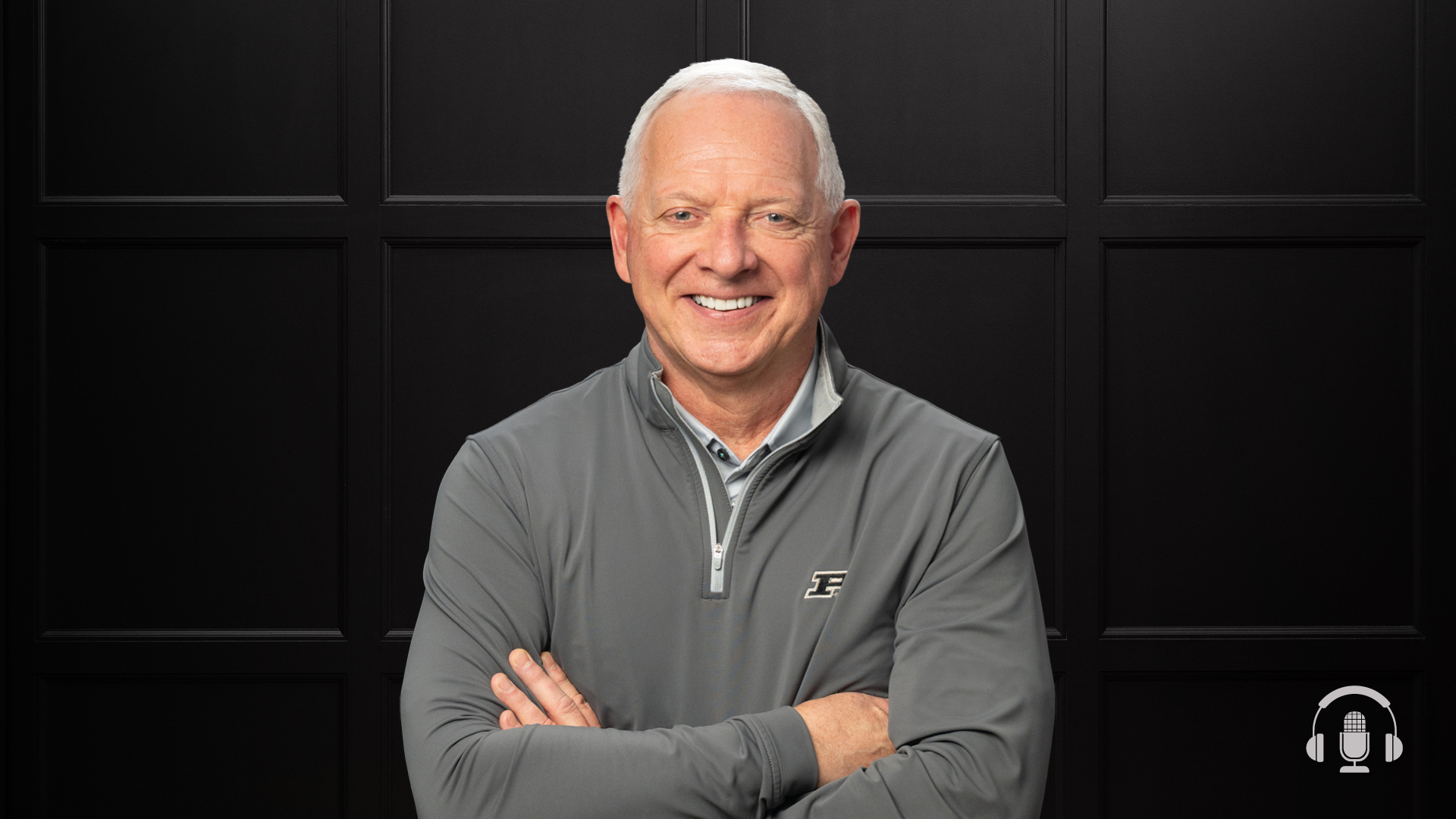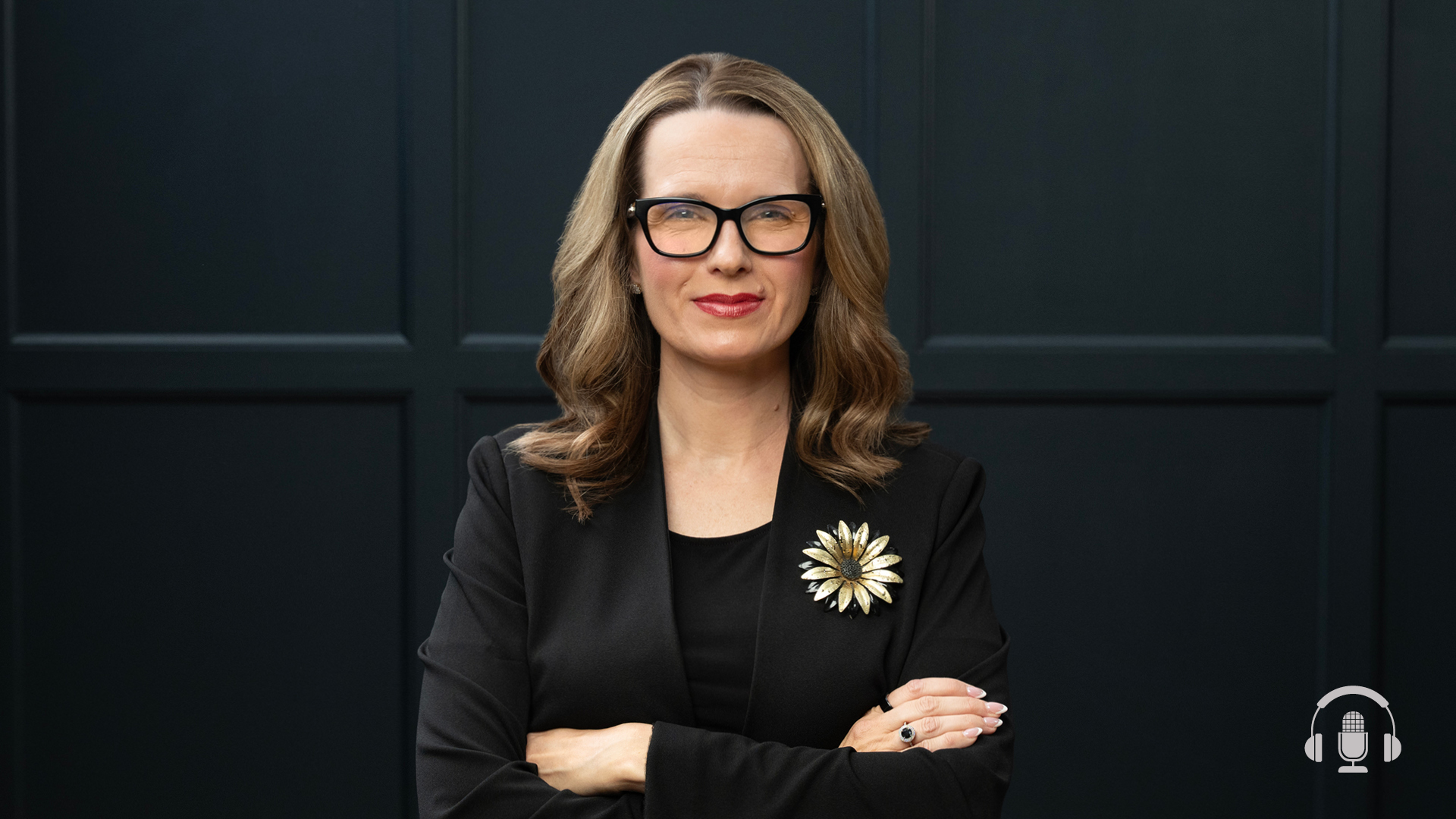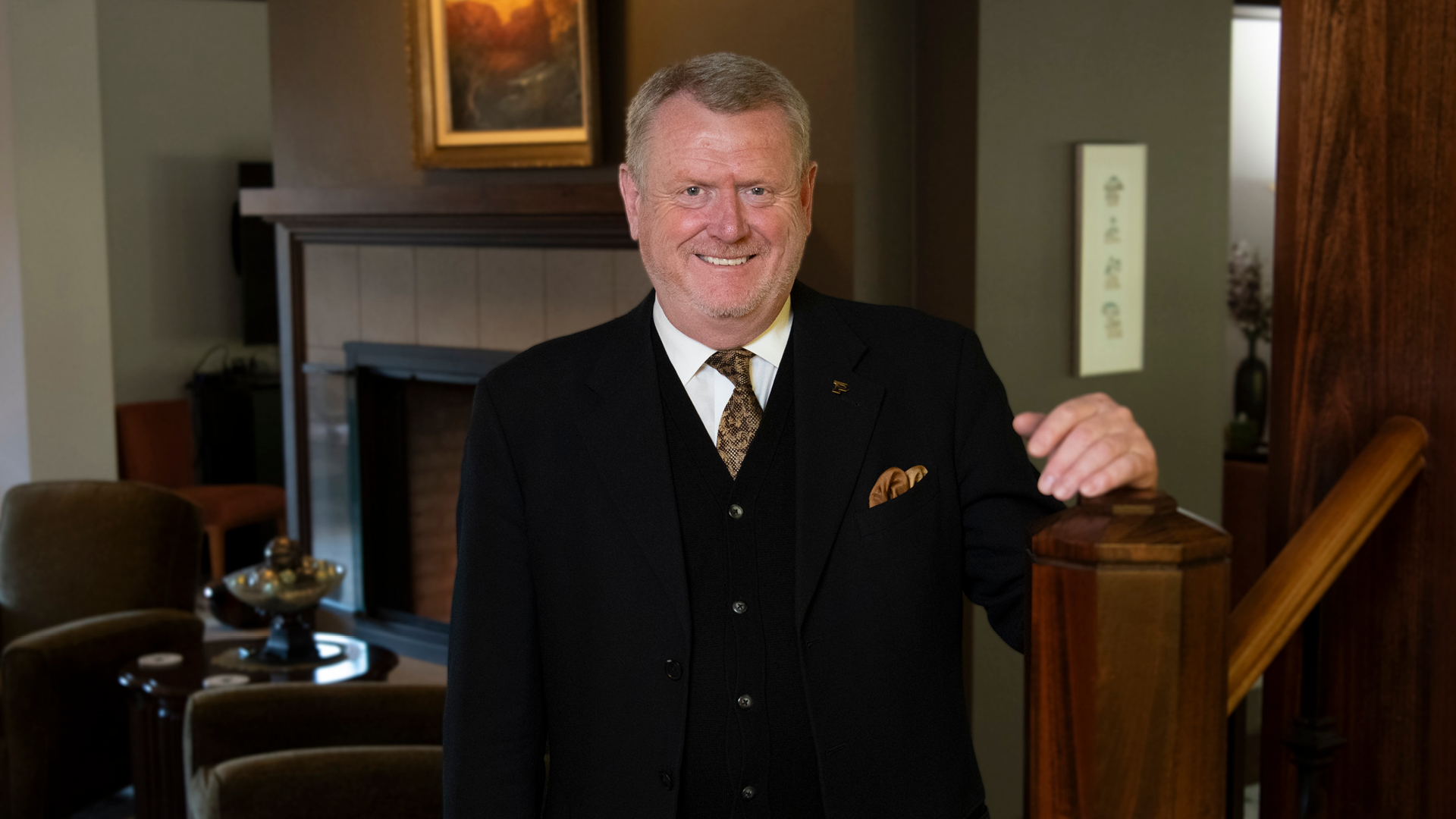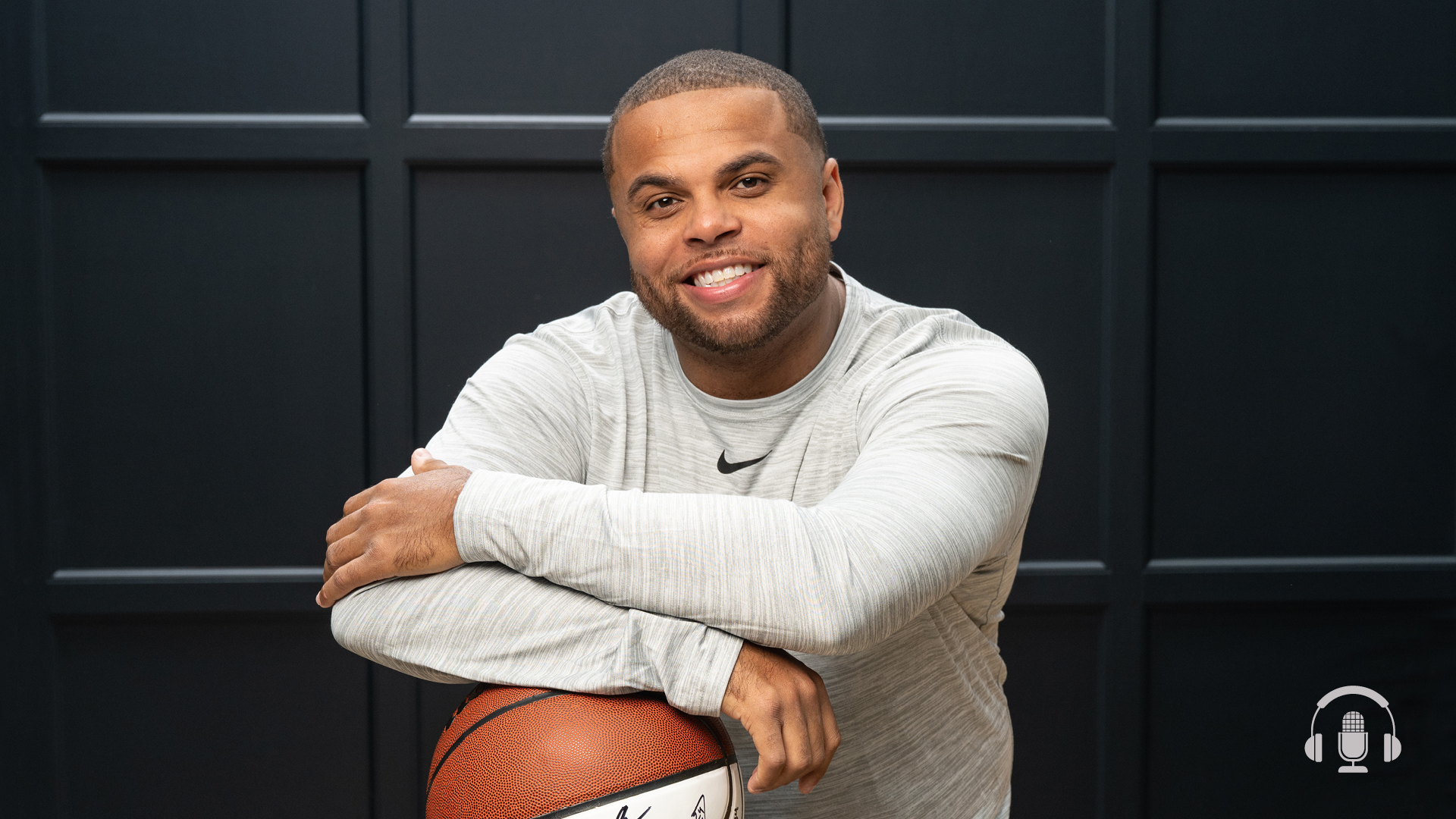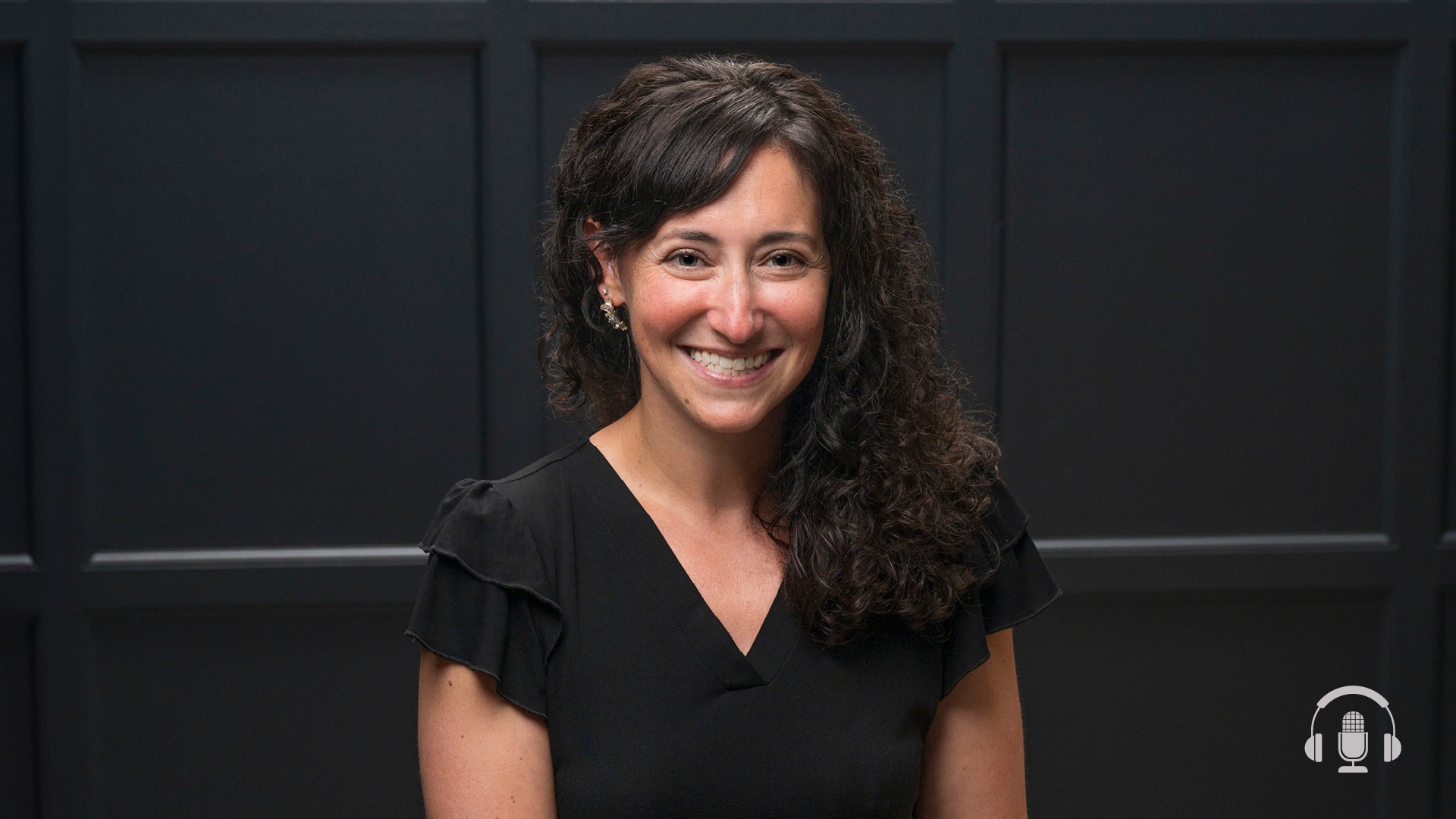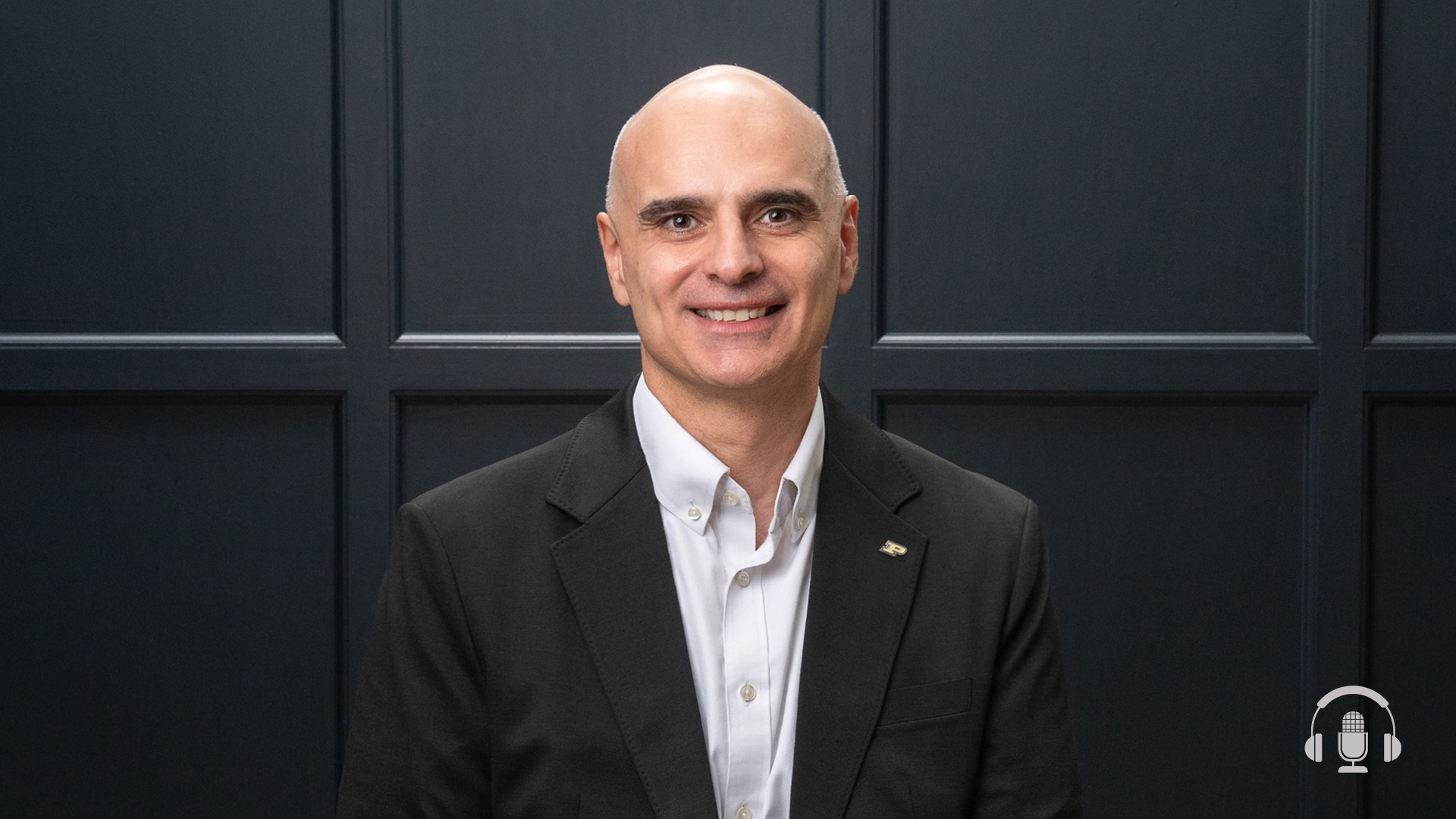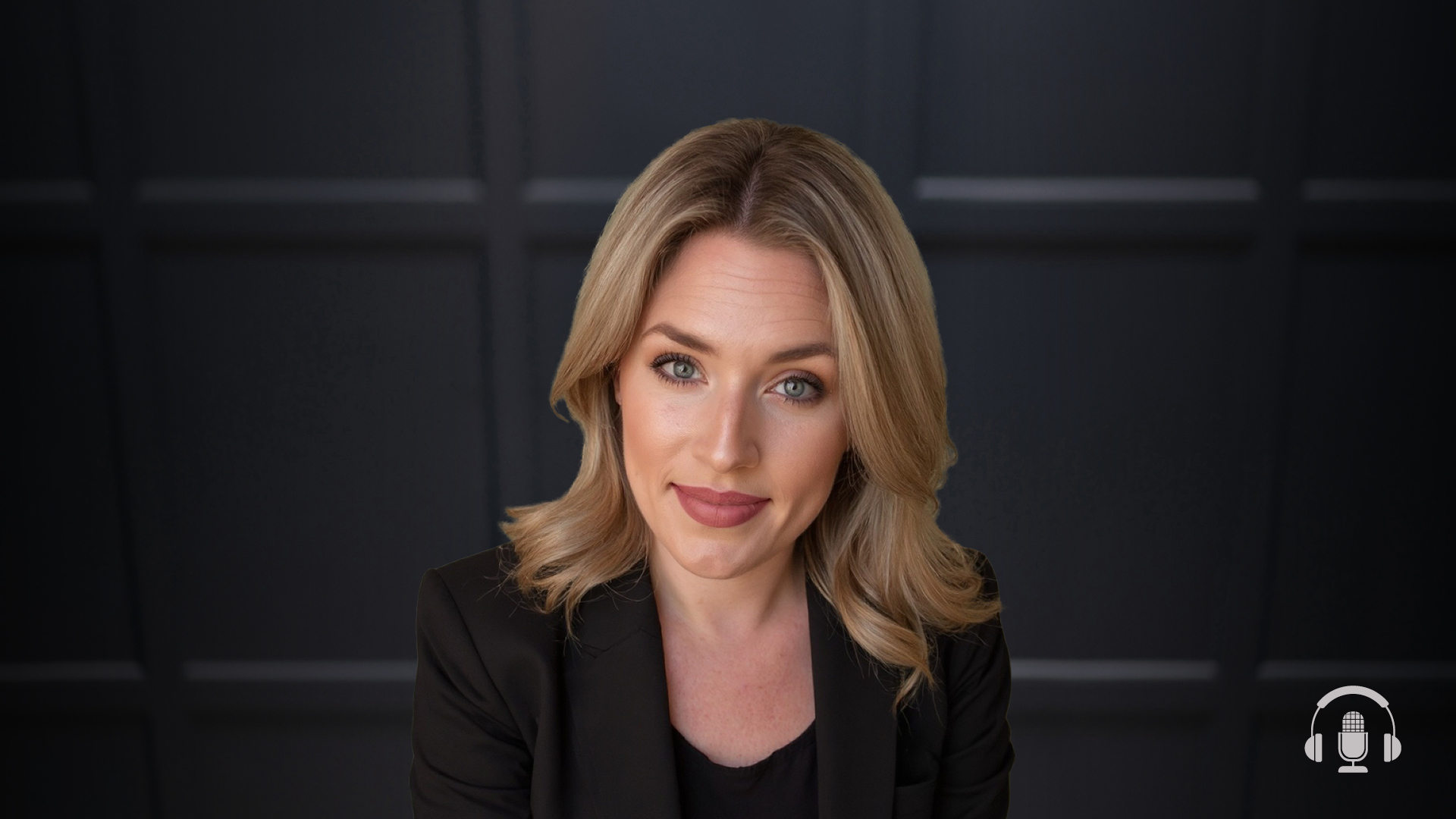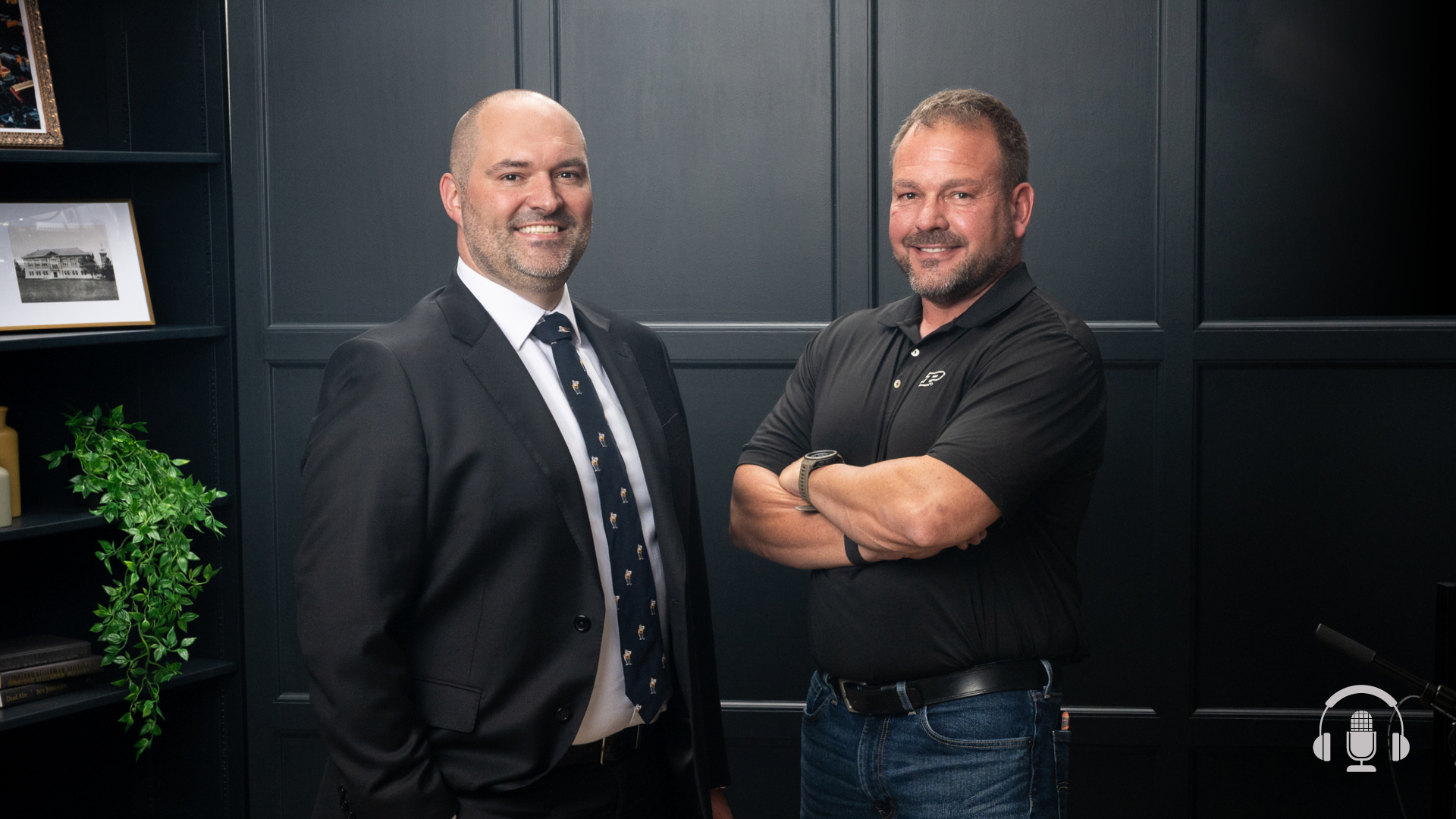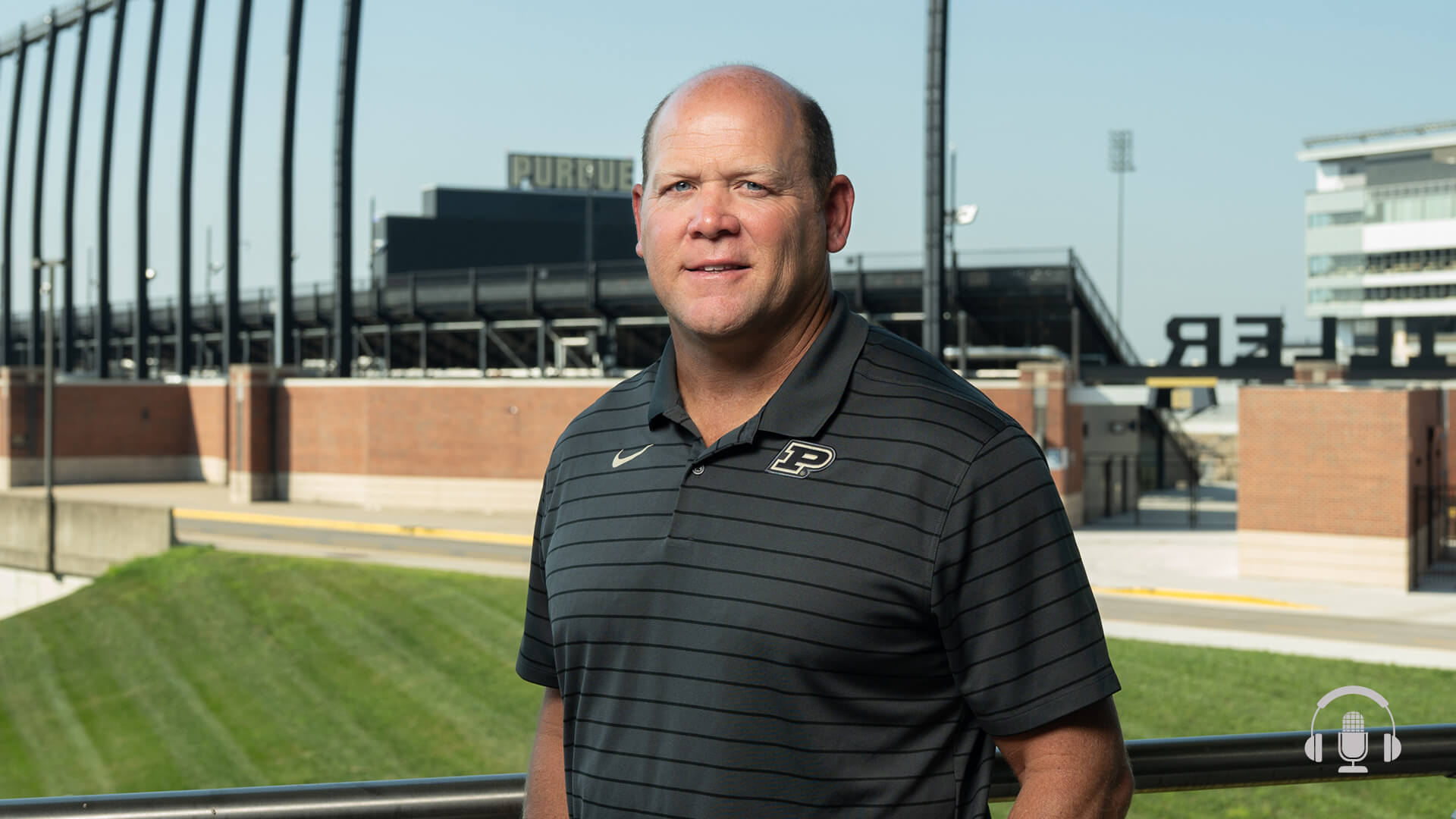Podcast Ep. 119: ‘Boilers to Mars’ Film Premiere Panel with Former NASA Astronaut Drew Feustel, Purdue Professors Briony Horgan and Marshall Porterfield, and SpaceKids Global Founders Marc and Sharon Hagle

In this episode of “This Is Purdue,” we’re talking to former NASA astronaut and Purdue University Presidential Ambassador Drew Feustel (BS solid earth sciences ’89, MS geophysics ’91), Purdue professors and NASA contributors Briony Horgan and Marshall Porterfield, and SpaceKids Global founders Marc (BS electrical engineering ’71, MS business and industrial administration ’72) and Sharon Hagle.
These five Purdue space experts came together for a live panel after Purdue premiered a first-of-its-kind short film — “Boilers to Mars” — in front of a sold-out crowd in Fowler Hall.
“Boilers to Mars” is a 10-minute film designed to explore what it will take to go first — to take the small steps that lead to the next giant leap. Each character’s persistence in this short film was inspired by our very own Boilermaker students, faculty and alumni.
In this episode you will:
- Discover the panelists’ emotional reactions to “Boilers to Mars” and how they saw their own unique experiences in space reflected in the short film.
- Get to know their experiences traveling to, working in and researching space.
- Get closer to answering the question “What will it take to go first?” as these panelists share how Boilermakers eventually could lead the way to humankind traveling to Mars.
- Hear their advice for the next generation of Boilermakers who hope to travel to or work in space one day.
- Learn more about the mission of “Boilers to Mars” supporting partner SpaceKids Global, which inspires and empowers young people by introducing them to the wide range of careers available in space exploration and technology.
You don’t want to miss this special live recording celebrating Purdue Brand Studio’s short film “Boilers to Mars” with insights from these Purdue space experts and leaders.
- Watch the short film “Boilers to Mars”
- Learn more about Drew Feustel
- Learn more about Briony Horgan
- Learn more about D. Marshall Porterfield
- Learn more about Marc and Sharon Hagle
- Learn more about SpaceKids Global
- Learn more about Purdue Brand Studio
Podcast Transcript
Kate Young:
Hi. I’m Kate Young, and you are listening to This is Purdue, the official podcast for Purdue University. As a Purdue alum and Indiana native, I know firsthand about the family of students and professors who are in it together, persistently pursuing and relentlessly rethinking. Who are the next game changers, difference makers, ceiling breakers, innovators, who are these Boilermakers? Join me as we feature students, faculty and alumni taking small steps toward their giant leaps, and inspiring others to do the same.
Drew Feustel:
I still remember the moment I got my acceptance letter to Purdue, and when I saw that film, I literally started crying when I saw that scene, because that moment for me was so impactful in my life, and I knew that it was going to lead to many amazing things, and it has. The fact that I’m sitting here now sharing this story with you means that it did make a difference, and I hope that all of you believe in the reason you’re here, and that you remember the moment you were accepted to Purdue, and that you’re here to make giant leaps, because you will. This is the place to do it, and we all commend you for being here and taking those steps.
Kate Young:
On September 12th, 2024, Purdue University premiered a first of its kind short film called Boilers to Mars, in front of a sold-out crowd in Fowler Hall. And in this episode of This is Purdue, we are featuring a special panel we recorded live at this incredible event. Designated as the Cradle of Astronauts, Purdue University knows what it takes to travel to space. And chances are when humankind makes its way to Mars, a Boilermaker will be in the lead. Boilers to Mars is a 10-minute film designed to explore what it will take to go first, to take the small steps that lead to the giant leap, and each character’s persistence in this short film was inspired by our very own Boilermaker students, faculty, and alumni. So before you tune into this episode, I highly recommend checking out the first ever short film produced by Purdue, on boilerstomars.com.
Then come right back here and listen to our panel conversation. See, during this event, the audience was able to view a special screening of the film, and then afterwards experience a conversation between five Purdue space experts. Former NASA Astronaut and Boilermaker alum, Drew Feustel; Purdue professors and NASA contributors, Briony Horgan and Marshall Porterfield; and SpaceKids Global founders, Mark and Sharon Hagle. I had the honor of moderating this panel and I’m really excited you all now get to hear these panelists discuss the future of space exploration. Here’s our live panel conversation from the Boilers to Mars movie premiere. But first, a quick word from this short film supporting partner, SpaceKids Global, an organization with Boilermaker ties that is advancing space awareness and exploration opportunities for the next generation.
Mark Hagle:
The short film Boilers to Mars is supported by SpaceKids Global, an organization dedicated to the future of space exploration. SpaceKids Global inspires and empowers young people by introducing them to the wide range of careers available in space exploration and technology.
Sharon Hagle:
Discover how we are shaping the future of space exploration one young mind at a time. Visit BoilersToMars.com.
Kate Young:
That was incredible. There’s just so many moments in that, that give me goosebumps. I’m sure you all felt that in the crowd too. My name is Kate Young, I’m the host of This is Purdue, the official university podcast. Any podcast listeners out there? All right. Okay. Well, I am so excited and honored to be here tonight to lead this panel and we have some incredible panelists with us. I know you all will enjoy it. So I’m going to start off by introducing them and we are going to have that conversation of what it takes to go first. So first up, we have former NASA astronaut Drew Feustel.
He is a Purdue University presidential ambassador and proud Boilermaker College of Science alum. He’s also part of Purdue’s esteemed Cradle of Astronauts. Okay, next up we have Mark and Sharon Hagle, founder of SpaceKids Global, a supporting partner for Boilers to Mars Tonight. Now they are space pioneers in their own right. Mark and Sharon made history after becoming the first married couple on a commercial space flight in 2022, and they also brought with them Saba the Space Dog as you can see here. And now, Mark is a proud Purdue alum. He’s a leading advocate for space exploration. Sharon is the CEO of SpaceKids Global, which is an organization that introduces kids to the diversity of careers in space exploration and technology, and it has a special focus on empowering young girls. The couple was also the lead donor of Mark and Sharon Hagle Hall, the home of Purdue bands and orchestras.
Next up we have Briony Horgan, a professor of planetary science in the Department of Earth, Atmospheric and Planetary Sciences. Briony specializes in Martian geology, so super fitting for us tonight. She’s also a co-investigator and long-term planner on NASA’s Mars 2020 Perseverance Rover mission. We also have a podcast about Perseverance Rover and Briony, so be sure to check that out. That rover has been collecting core samples of rocks on Mars since 2021, with the hopes of bringing it back to earth for further study.
Okay, and finally we have Marshall Porterfield. Marshall is a professor of agricultural and biological engineering in Purdue’s College of Agriculture, and former division director for Space Life and Physical Sciences at NASA. Marshall has been studying life in space for over 30 years, so he’s going to be a great panelist to join us tonight. And Marshall and his team’s LEAF project was recently selected by NASA for the Artemis III mission. This project will explore cultivating crops in space with the goal to grow plants on the moon by 2026. So give another round of applause for our panelists. Thank you all for being here. We just watched that film. What’d you guys think?
Drew Feustel:
I think it’s amazing.
Kate Young:
So to kick this panel off, Boilers to Mars has host a crew of people that all help together to take this mission and be the first. So with your all experiences within the space industry, what did it take for you to go first? We’ll start with Drew and we’re going to go down the line.
Drew Feustel:
I don’t think I was first at anything. I was just following the long tradition of astronauts coming from Purdue and we always say that we stand on the shoulder of giants, those that came before us, that’s certainly been true in NASA. And I think now with the private space sector building capabilities, those individuals and those companies are standing on the shoulders of the giants that came before them, and the heritage that as a university like Purdue has created to allow that to happen. So it’s just amazing to be associated with such great institution and history, and just pleasure to be here. And I want to thank everybody for coming out, and I did think the show is amazing. I just really love that film.
Kate Young:
Mark and Sharon for you both. What themes in Boilers to Mars resonated with your experience going up in space as the first married couple?
Mark Hagle:
First of all, you guys are so lucky and so fortunate to be at such a wonderful university. What this university has to offer is just incredible. And the opportunities, the opportunities it gives you in life is just amazing. And it said in the thing not to be afraid to be first. Richard Branson said it a little differently. If your dreams don’t scare you, they’re not big enough. So think of what the future could be for you, think what the opportunities are and what the benefits could be with an education that you get such a wonderful university. So my congratulations to you for being here and we were very fortunate to be the first married couple to go on a commercial flight to space, and probably the first legal kiss in space. I’m not sure about that.
Sharon Hagle:
And we’re still talking. No, what better way to venture into space? We are so grateful for the opportunity to be a part of the space industry so early on, as it starts to take flight. We did have an opportunity to meet with some people and I always like to say there’s three things that can change your trajectory. It’s education, opportunity and experience, and being at the right place. And I think you guys did an excellent job, because I’ve always told people when I’m speaking, that going to space is the most emotional and spiritual journey you will ever take, and I think this film pokes you on how emotional it is and how it’s so exciting.
Mark Hagle:
Saba, do you have anything to add?
Sharon Hagle:
By popular demand, anybody that follows SpaceKids Global knows that Saba is always there. Blue Origin made him a flight suit to match ours, so every time we go into schools or science centers, he has his space suit on. And the first question Q&A is can we see your dog again?
Kate Young:
Briony and Marshall, same with you too. How did you resonate with Boilers to Mars on a personal level?
Briony Horgan:
Yeah, I mean it’s amazing seeing what Purdue students can do, right? We’re giving them all these amazing opportunities and skills, but it’s really up to the students to take them and do an incredible thing with them. And so, for me it was just so rewarding to think about maybe some of our first planetary science graduating class of students who graduated just about 10 years ago, might be some of the first astronauts on Mars, using some of the things they learned in our classes about the planets, about the geology of Mars to actually go study things on Mars, which is just really, really uplifting for me.
Marshall Porterfield:
For me it looked like home, because the students in the greenhouse, those were my students in the greenhouse just this morning to me, so it looked like home. But no, how do you go first? You have to prove that you’re ready for that, and how do you prove? You prepare yourself, you have to learn. And really, learning requires making mistakes, so you have to be not afraid of making mistakes, and learning from those mistakes, and that’s how you learn to move forward. That’s how you become the first, to get the chance to go first.
Kate Young:
And that persistence after you make a mistake to keep going, right?
Marshall Porterfield:
That’s right.
Kate Young:
Each of you have worked closely with government agencies like NASA and commercial entities like Blue Origin. Can you share some of your professional experiences when it comes to working towards traveling to and sustaining life in space? Drew, we’ll start with you.
Drew Feustel:
Of course NASA has been working for decades to put humans in space and one of the mandates of NASA is to enable low earth orbit economy ultimately, and assist lunar economy, to see that not only government agencies are sponsoring human space, flight and space travel, but also private industry. So what’s been amazing is to see very recently, I mean, over the last decade, is how the private companies are coming online. We see that SpaceX has been very successful in providing access to the International Space Station and the idea is that we’ll keep developing those capabilities, allow NASA to focus on returning to the surface of the moon, and ultimately going on to Mars with the support of these private industries. And those industries with government funding right now are enabling or creating spacecraft and vehicles to get us there, and that allows NASA to do more with less budget, but also focus on the longer term, bigger picture projects and allow companies to be service providers for that access to space.
So it’s been incredible to watch that happen. I was speaking with Mark just earlier about the idea that I have that we’re at an inflection point in human space exploration, where our technologies and capabilities are finally catching up with our desires and intentions in space, and that to me is really exciting. This is the most dynamic period of human spaceflight in its entirety of the entire program, since we started sending people into space in the late ’50s and early ’60s. So this is incredible time. We look forward to more advancements and really, we’re still at the infancy stage of human exploration. This is just the beginning and in 20 years or 50 years, we’re going to look back at the shuttle era, the Apollo era, the Gemini era, even the SpaceX Dragon era, and think how these were humble beginnings that led to all the great advances that we’re going to see I think in the next few decades. It’s just incredible.
Mark Hagle:
To amplify on that, the public-private partnership has been such a dramatic change to the space industry, and its ability to excel and move forward, and move forward at a pace that’s never been seen before in the history of the world. It’s incredible the accomplishments that have been made in the past years. And if we look to sustainability, if we look to the future of that, what it really means, the future isn’t necessarily the people that are sitting in this room, because we’re looking at going to Mars in sometime in the 2030s. The future of the young kids today and the education of the people that are 16 and younger, those are the people that are probably going to be on those first missions. And to encourage them to go into the STEM fields and to encourage them to get educations that are transformable into what is needed to go to Mars, not just as an astronaut, but as Sharon I’m sure will expand on, other professions. That’s what it’s really all about. That’s the sustainability for the future.
Marshall Porterfield:
Drew, when you were talking the way you were explaining it made me think about us outgrowing our logistics capabilities. That’s essentially what you’ve explained, and that means how do we provide food, water, sustainable human life? How are we going to sustain humans on these long duration missions? That’s going to require bioregenerative technologies, and that’s where we’re at now in terms of the gap. It’s the gap is biological, and so that’s why we’re really looking at developing the foundations for Bioastronautics, to create what comes next here at Purdue.
Mark Hagle:
But if I might expand on that and you’re exactly on point, and that is that problems that have existed on earth and problems that have existed in what do we do tomorrow? How do we solve the problem? They’re done by imagineers. They’re done by people that have the wherewithal and the capability of solving technological problems in advancements and discoveries for the future. The average age of the person that worked on the flight to the Moon was 26 years old. Sharon and I had the opportunity to tour SpaceX’s facility in Los Angeles, and the gentleman that designed the spacesuit, if you were watching what was happening today in space, where they had the spacewalk with the commercial astronauts, that spacesuit was designed by a graduate from MIT whose first job was working for SpaceX to design that spacesuit. Why is that? Young people don’t have boundaries. They don’t have preconceived notions on what should be and the way it should be. They’re problem solvers. That’s our future.
Sharon Hagle:
So in 2016, NASA graduated the first crew that was 50% women, 50% men. That was unheard of. At SpaceKids Global, we focus on elementary schools, getting the students excited about living off planet and preparing them for their futures in space. When they asked the astronauts when they knew they wanted to be in the space industry, nine times out of 10 it was a first grade teacher. That’s why it’s critical that we get students in early ages, from five years old to 12 years old, to participate and get them engaged.
Briony Horgan:
I’ll say the thing I’m most excited about, looking ahead to having humans on Mars is the amazing science we’re going to get to do. As it’s true, right? Because we’re going not just for exploration, but to learn new things, to push the frontiers of science, to learn basic things, like is there life in the universe beyond earth? And we’re trying to do that right now with our Rover, with the Perseverance Rover. We’re searching for signs of ancient microbial life on Mars, trying to collect samples to bring them back to earth, hopefully one day. But that’s the first step, right? But what’s really great is watching how things have evolved at NASA in terms of integrating science into the exploration, right? It’s not just flags and footprints anymore. It really is about where’s the best place we can go on the, back to the moon or to Mars, or we can learn the most to really help advance our science. And just watching that get closer and closer, as our little Rover gradually climbs up the giant crater rim of Jezero crater. It’s just getting closer every day.
Kate Young:
In Boilers to Mars, as we talked about sustainability, the crew tackles one of the toughest challenges the world is facing, is maintaining a sustainable presence to be on space. Drew, why do you think traveling to Mars is an important mission? Not just for Boilermakers, but for the whole world?
Drew Feustel:
In the words of John Young, “Single-planet species don’t last forever, just ask the dinosaurs.” And right now we are a single-planet species, and I truly believe as an astronaut that it’s really important for us to learn to live off of the planet, but also in attempting to live off the planet, we will create and understand technologies and capabilities that will allow us to survive on this planet. The regenerative life support systems and biogenetics, and all those things that are going to be important for us as we use resources on our planet, sometimes responsibly, sometimes irresponsibly. Those technologies that we create and the way we understand what it will take to live in the hostile environments of space will also provide opportunities for us to continue to live and thrive on this planet, which is going to be really important in our near term.
Marshall Porterfield:
Yeah, the sustainability issue is, really that is the gap. If you think about the cost of these missions and the mass issues, you buy down that mass by making everything recyclable. Now all of a sudden these missions are possible both in terms of the human life support, but also economically too. So we can actually buy it down that way. But what we’re trying to do in space is solve all the problems that are already a problem here on earth, but they’re harder in space. So it’s kind of ironic in that way too, but it’s also profoundly interdisciplinary. It’s not just an aerospace problem, it’s agriculture, biology, medicine. All the disciplines of life have to become together, and you think about an engineered system that brings together all the disciplines of life and of humanity, and that’s really the challenge. It’s a major challenge for humanity. We need to create the technology to be sustainable here. At the same time, that’s going to enable us to be able to project humanity out into this universe.
Kate Young:
Briony and Marshall, as professors at Purdue, what do you think it will take Boilermakers specifically to go first with this?
Briony Horgan:
I think they’re already doing it, to be honest, right? I think we’ve got some of the best students in the country thinking about these exact problems, right? Really putting their minds to this. And already we have student groups there, Marshall was telling you about student groups that are trying to build the first to Habitat at a university to test living on Mars. We have students group trying to fly small stats in the space. It’s really, really incredible what Boilermakers students can do and they’re already doing it. So all you have to do is graduate and keep doing amazing things.
Marshall Porterfield:
And there’s so much energy and excitement right now with some of the students, and students groups are starting to respond to these opportunities, and starting to organize themselves. In some ways they’re actually ahead of NASA and trying to build a habitat here to actually do that kind of work. So yeah, it’s really important. We can do it here too.
Kate Young:
Mark and Sharon, what motivated you two to be so involved in inspiring the next generation? You’ve talked a lot about that with SpaceKids Global. What makes you two really inspired to have kids think that they’ll be the first, right?
Sharon Hagle:
Well, it all started a while ago when we were with Richard Branson. We signed up, what, 20 years ago to be Virgin Galactic Future Astronauts. And by the way, space, you have to have patience. It’s not an overnight success. We’ve founded SpaceKids Global based on three things. At the time I was reading the International Educational Forum, where it stated that the US students had fallen to 38 in math and 71 in science out of 71 countries. Then I was at a college where Dr. Michio Kaku was speaking, the physicist, and he said, “If you don’t have kids hooked in math and science by six and seven, you’re going to lose them.”
And then when we were speaking to Richard, Richard kind of pushed me and said, “Sharon, if your dreams don’t scare you, they’re too small.”
So I think the universe wanted me to start this. What’s so exciting about our mission is we’re inspiring elementary school kids in STEM, education, plus environment, but ensuring that girls are equally represented. There are 3.5 million STEM job vacancies predicted by 2025. Three years ago that sounded like a long time away, but it’s just right around the corner. The thing that we’re doing at SpaceKids is we’re bringing hands-on projects through the partnerships of our space companies, and we’ve been able through that program to send 21 science projects to the ISS. Remember, these kids are only five to 12 years old. Through our partnership with Zero G, we had a national essay competition on why I want to go to space. Interesting reactions to that. Some kids wanted to go to space, others said, “No way. I’ll stay on the ground and help you design the rockets.”
And then we bring Title One students over to Kennedy Space Center. But the project that I’m really excited about is the one we just released, the winners of our SpaceKids Press Squad. And these are kids across the country between the ages of eight and 12, and they are going to come to Kennedy Space Center, two day all expenses paid. They are going to be space reporters. They’ll come to Blue Origin, they’ll get a behind the scene tour, New Glenn. They’ll be interviewing scientists, engineers, everyone that it takes to put a trip together, a launch together. We’re really excited about this, because these kids have no idea, seven of them have never been to Kennedy Space Center. So by bringing these hands-on projects to kids across the country, we’re making them participators, not spectators. The big thing is we’re making learning fun again. Did you want to add anything?
Mark Hagle:
Yeah. SpaceKids was originally designed as Sharon said, to encourage the young children to get excited about the possibilities of STEM education as it relates to space, and other scientific and environmental fields. The ultimate goal of SpaceKids, and it’s on its mission to get there now, is to expand that program and partner with other people that have the same vision that we have, but then go vertically integrated. It’s my Purdue education talking, go vertically integrated and start partnering with companies that take the kids once they get past the elementary age, and take them up through the junior high school and the high school, and the college age, and eventually into internships and jobs with industry, and inventions that they might have going in the future. That part of the program is presently in process in, there’s nothing more important than education. Education is what solves the problems in the world. Education is what’s going to keep humanity alive on earth.
Sharon Hagle:
That’s what we’re trying to do is bringing the possibility of space to kids everywhere.
Kate Young:
This is something we touched on throughout this whole panel. We look out on our audience tonight. We have so many students out here. There may be future space researchers, maybe even a future astronaut or two out there. So what advice would you all give to these Boilermakers who are trying to tackle the world’s toughest challenges?
Drew Feustel:
My advice is to do what you love. And also, something that people told me growing up and that we’ve all heard is that okay, you can do anything you want to do. Anything you can imagine. I grew up really thinking, okay, maybe that’s a cliche, like, okay, sure you can do anything you want, but guess what? Actually you can. Your mind is very powerful thing, and that subconscious programming and goal that you have in your head, you may not realize the mechanics required or the events that are going to transpire in your life that will get you to the place you want to be. But if you have that drive in your mind and in your soul, you will end up where you need to be. Just pursue the things that are important to you and that are meaningful, and you’ll achieve the goals that you set out in front of you.
It can happen and it will happen. And I know, because it happened for me and I had a rocky start. And I owe a lot of it to my wife, Indra, who’s here today as well. A lot of your success depends on who you align with, your friends, your family, in my case, my spouse, to create those successes and those opportunities. So just remember that you’ll never walk through a door if you don’t knock on it first. So don’t leave any doors closed and try to walk through all of them that you have an opportunity to. If you have a chance, why not? Because you only have so many chances to be able to say no to something. So take the opportunity to make decisions and take those chances in life, but believe in yourself so you can get there.
Mark Hagle:
Boy, that’s hard to follow. You’re getting an education that gives you the background and the understanding of how to face problems, and how to solve problems, and that’s important. And as Drew said, make sure you do something that you’re excited about. If you’re excited about it, guess what? If you keep your eyes open and listen to the world, opportunities are going to present themselves to you. They always do. I had no idea where I was going to be in life when I was taking my education at Purdue.
I started out majoring in physics, changed to electrical engineering and graduated in that, but I had an opportunity my junior year to take a small business management class, and that opened my eyes to the possibilities of combining my engineering education with a business education, and that’s what gave me the capability of being able to do what I’m doing today. Opportunities will present themselves. The person that is able to identify those opportunities, face them, solve the problems associated with them, take the challenge associated with them, and move forward. You’re going to have so much fun in your life and you’re going to enjoy what you’re doing, and it’s going to be a benefit to everybody.
Sharon Hagle:
What excites me today is this basis for everyone. It’s people like you and me that are getting the opportunity to go to space. I can tell you as a sixth grader and listening to a PA system in a class in West Virginia, back in 1961 when Alan Shepard did his suborbital, that had never been done before. I mean, you guys are used to watching launches every week, but for that little girl, she had no idea how that was going to affect her, because it’s a long way away from West Virginia to Kennedy Space Center. But little did I know 61 years later, I would be launched on a vehicle named after him. My point is, the curiosity, the hope, that’s the changes. Mark and I are getting ready to be launched again next month. We’ll be making our second trip into space, and now when I go outside and look at the moon, it’s the hope. Maybe I can go there.
Kate Young:
Briony and Marshall, what do you have to say to people out there who want to go up in space one day?
Briony Horgan:
Start small. It really is at the first step. The first step leads to a giant leap later. It’s as I think Drew was saying really nicely, it’s just go for every opportunity you can. Don’t tell yourself no. I always tell people, especially women have a tendency to say, “Oh no, I’m not qualified for that. I’m not going to apply.”
Let the people looking at your application or whatever tell you no, don’t tell yourself no. It’s so important, because once you get one thing funded, awarded, one group you’ve joined and had a good time, the next thing comes so much more easily. It just keeps snowballing and that’s how you get to have an amazing life doing amazing things, because you went for that first shot and just didn’t give up.
Mark Hagle:
But if I may, let me add to that. If you do get a no answer, don’t accept it. I understand the problem associated with that no answer and solve the problem, and do it again. It’s going to happen
Sharon Hagle:
To be this age, the possibilities that you guys are going to have, and who knows? The person sitting next to you might be that first person on Mars.
Marshall Porterfield:
I identified with one of the characters in the movie and grew up with fathers in the military. So I moved around a lot and I think that made me more open to diversity, more creative in how I thought about things. But I think right now for the students to realize if you’re really interested in space and the opportunities in space, that there’s a huge gap in terms of life support. It is the last unsolved problem on bioregenerative life support. How are we going to accomplish that? So there’s going to be so many opportunities for students across all different disciplines and walks of life to contribute to what comes next in space, because it’s really about what life on earth. We are working to get, a group of faculty and I are working together right now to try to develop a new curriculum program in Bioastronautics, so keep your eyes open for that in the next year. We’re hoping that we’re going to create more curriculum opportunities for students to really get involved on the front line.
Kate Young:
We can’t thank you enough for being here. This was incredible. Thank you. Thank you all for coming out tonight. I hope you had a wonderful time. I know I did sitting up here.
Drew Feustel:
Can I add something?
Kate Young:
Sure.
Drew Feustel:
I just want to say this, because I didn’t get a chance to say it earlier. I should have. I still remember the moment I got my acceptance letter to Purdue. And when I saw that film, I literally started crying when I saw that scene, because that moment for me was so impactful in my life and I knew that it was going to lead to many amazing things. And it has. The fact that I’m sitting here now sharing this story with you means that it did make a difference. And I hope that all of you believe in the reason you’re here and that you remember the moment you were accepted to Purdue, and that you’re here to make giant leaps, because you will. This is the place to do it, and we all commend you for being here and taking those steps. Just keep up the great work and make us proud, because it’s an amazing journey. This is the best time of your life.
Kate Young:
Thank you, Drew for just doing my outro for me. I can’t compete with that, but be sure to check out This is Purdue. You can listen to this panel conversation. We’re going to turn it into an episode. Be sure to check out our gold carpet out there. You got to get a photo out there. #BoilerstoMars. There’s some photo props outside as well, so be sure to share the love on social. And again, thank you to our wonderful panelists. It was an incredible evening, and Boiler up.
What an incredible experience and event for our entire Purdue brand studio team to be a part of. This short film was more than a year and a half in the making, and it was so meaningful to watch our fellow team members experience the joy and excitement of this project, making its official debut to the public. Remember, you can check out this short film, learn more about its inspiration, and even buy merch anytime on BoilersToMars.com. Trust me, you’ll want to check out the T-shirts we have on there. And if you enjoy this episode, you’ll definitely want to check out our behind the scenes videos from this movie premiere event on our podcast YouTube page, YouTube.com/@thisisPurdue.
And of course, be sure to follow us on Apple Podcasts, Spotify, iHeartRadio, or wherever you get your podcasts. This is Purdue is hosted and written by me, Kate Young. Our podcast videography for this episode was led by Ted Schellenberger, in collaboration with Thad Boone, Jon Garcia, Alli Chaney, and Zach Mogensen. Our social media marketing is led by Maria Welch. Our podcast distribution strategy is led by Teresa Walker and Carly Eastman. Our podcast design is led by Caitlin Freeville and Cheryl Glotzbach. Our podcast photography for this episode was led by John Underwood. Our podcast team project manager is Rain Gu. Our podcast YouTube promotions is managed by Kirsten Bauman. Additional Writing and research assistance is led by Sophie Ritz. And our This is Purdue intern is Caroline Keim. Thanks for listening to This is Purdue. For more information on this episode, visit our website at purdue.edu/podcast. There, you can head over to your favorite podcast app to subscribe and leave us a review. And as always, Boiler up.
